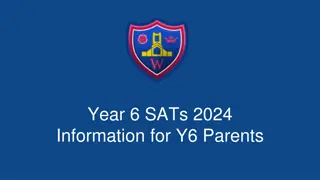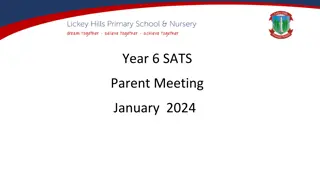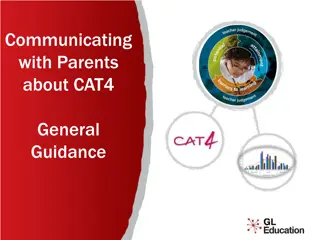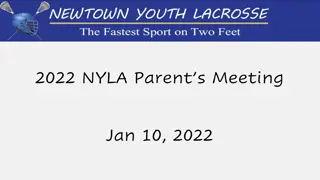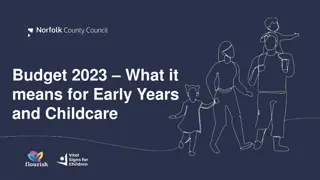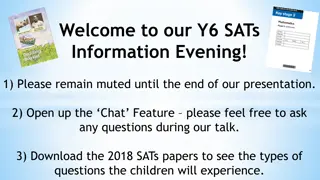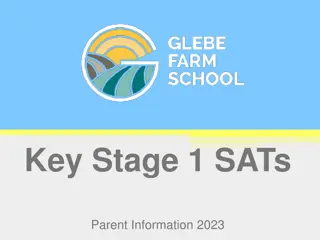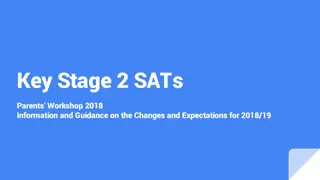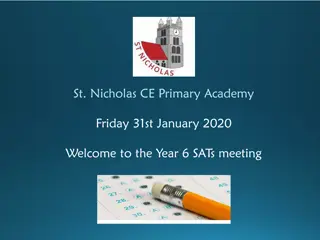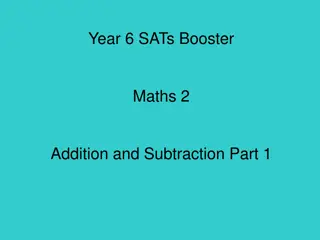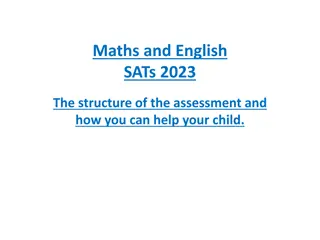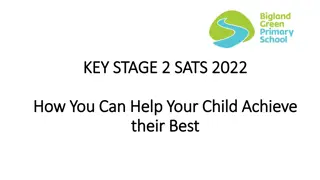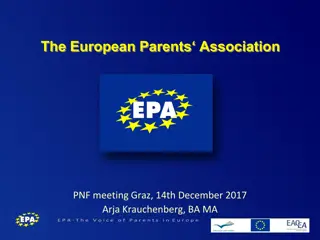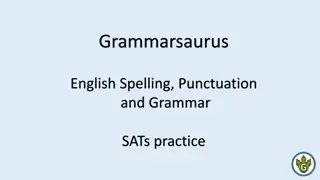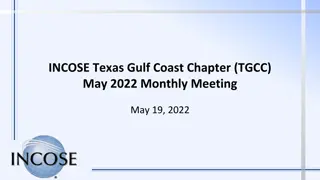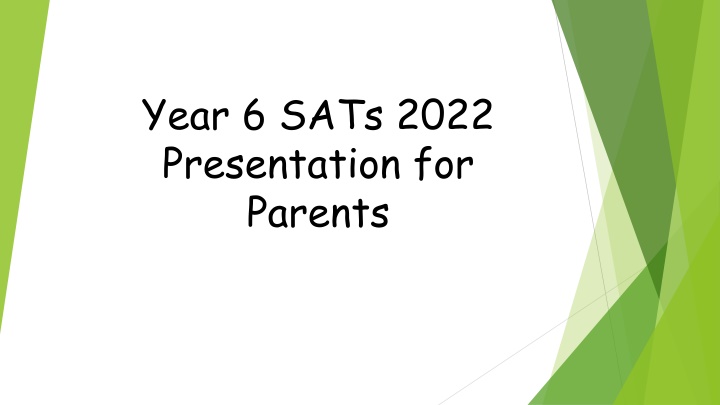
Key Information about Year 6 SATs 2022 for Parents
Understand the schedule, subjects, and special arrangements for the Year 6 SATs 2022. Learn about the assessment process, test timings, and how results will be reported to parents. Get insights on specific arrangements for children with additional needs during the assessments.
Download Presentation

Please find below an Image/Link to download the presentation.
The content on the website is provided AS IS for your information and personal use only. It may not be sold, licensed, or shared on other websites without obtaining consent from the author. If you encounter any issues during the download, it is possible that the publisher has removed the file from their server.
You are allowed to download the files provided on this website for personal or commercial use, subject to the condition that they are used lawfully. All files are the property of their respective owners.
The content on the website is provided AS IS for your information and personal use only. It may not be sold, licensed, or shared on other websites without obtaining consent from the author.
E N D
Presentation Transcript
Year 6 SATs 2022 Presentation for Parents
What are the SATs? SATs is used to refer to End of Key Stage 2 Assessments; It lasts for four days beginning on Monday 9thMay 2022 and ending on Thursday 12thMay 2022
SATs 2022 Monday 9thMay Thursday 12th May Monday 9th May 2022 Tuesday 10th May 2022 Wednesday 11thMay 2022 Thursday 12thMay 2022 Friday 13th May 2022 Spelling, Punctuation and Grammar tests Reading test Maths Arithmetic paper 1 Maths Reasoning paper 3 No tests! Maths Reasoning paper 2
What are the SATs? Writing is assessed using evidence collected by your child s teacher throughout Year 6, so there is no Year 6 SATs writing test.
When and how are the SATs carried out? The tests will take place during normal school hours, under exam conditions in the school hall. Children are not allowed to talk to each other from the moment the assessments are handed out until they are collected after the test has ended; Afterwards, the completed papers are sent away to be marked externally; The children s results are sent back to school at some point in July and will be reported to parents and carers; The standard timings of tests differ but last no more than 60 minutes: - Grammar, Punctuation and Spelling (Paper 1) 45 minutes; - Grammar, Punctuation and Spelling (Paper 2) 15 minutes; - Reading 60 minutes; - Maths Paper 1 (Arithmetic) 30 minutes; - Maths Paper 2 (Reasoning) 40 minutes; - Maths Paper 3 (Reasoning) 40 minutes.
Specific arrangements for SATs: Children with additional needs, who have similar provision in their day-to-day learning at school, may be allotted specific arrangements, including: An adult to read for them; The use of prompts or rest breaks; Arrangements for children who are ill or injured at the time of the tests.
What sort of results are reported? Once marked, the tests will be given the following scores: o A raw score (the total number of marks achieved for each paper); o A scaled score (which is explained below); o A judgement of whether the National Standard has been met. After marking each test, the external markers will convert each raw score into a scaled score to show whether each child is working below, at or above the national standard. Scaled scores change each year depending on the difficulty experienced nationally of the papers that year. When the scaled score is given, it is given in a range from 80 to 120. A scaled score of 100 or more is meeting the national standard. There are no separate tests for higher achieving pupils; however, a scaled score of 110 - 120 would show that a child is working above the national standard known as working at greater depth.
Grammar, Punctuation and Spelling Grammar, Punctuation and Spelling is made up of two papers which will take place on Monday 9thMay 2022: Paper 1 is the longer paper lasting 45 minutes, children will be tested on grammar and punctuation and spelling generally; Paper 2 is a shorter paper lasting 15 minutes, where children will be tested on spelling only they are asked to fill in a blank within a sentence, attempting to spell out the spelling word in context correctly.
Grammar, Punctuation and Spelling (Paper 1) Example questions:
Grammar, Punctuation and Spelling (Paper 2) Grammar, Punctuation and Spelling (Paper 2) is the shorter paper, which takes place on Monday 9th May 2022. Example questions:
Reading The reading test consists of a single test paper with three unrelated reading texts. Children are given 60 minutes in total, which includes reading the texts and answering the questions. A total of 50 marks are available. Questions are designed to assess the comprehension and understanding of a child s reading. During the reading paper, a child s inference and deduction skills are thoroughly tested. They will also be expected to answer questions on authorial choices: explaining why an author has chosen to use particular vocabulary, grammar and text features. Some questions are multiple choice or selected response; others require short answers and some require an extended response or explanation.
Reading Example question, based on Text 3 The Lost World: 2e) predict what might happen from details stated and implied
Mathematics The mathematics tests have undergone the biggest change in recent years. Children will sit three tests: paper 1, paper 2 and paper 3 Paper 1 is for arithmetic lasting for 30 minutes, covering calculation methods for all operations, including use of fractions, percentages and decimals. Questions gradually increase in difficulty. Not all children will be expected to access some of the more difficult questions later in the paper. Papers 2 and 3 cover problem solving and reasoning, each lasting for 40 minutes. Pupils will still require calculation skills but will need to answer questions in context and decide what is required to find a solution.
Maths Paper 1 (Arithmetic) Maths Paper 1 (Arithmetic) will take place on Wednesday 11th May 2022. It has a standard timing of 30 minutes and is worth a total of 40 marks. It covers the four operations (division, multiplication, addition, subtraction and mixed operation calculations requiring BIDMAS), as well as number properties, calculating percentages of amounts, calculations using decimals, and calculations using fractions. Example questions:
Maths Papers 2 & 3 (Reasoning) Maths Paper 2 (Reasoning) will take place on Wednesday 11th May 2022. Maths Paper 3 (Reasoning) is scheduled for Thursday 12th May 2022 Both have standard timings of 40 minutes and are worth 35 marks each. Paper 2 requires children to demonstrate their mathematical knowledge and skills, as well as their ability to solve problems and their mathematical reasoning. Questions focus on the following Mathematical topic areas: - Number and place value including Roman Numerals; - Addition, subtraction, multiplication and division (calculations); - Geometry properties of shapes; - Geometry position and direction; - Statistics; - Measurement including length, perimeter, mass (weight), volume, time and money; - Algebra; - Ratio and proportion; - Fractions, decimals and percentages. The questions get harder throughout the paper. It is not unusual for a child to be unable to complete the entire paper in time.
How can I support my child?
Reading Listening to your child read can take many forms. First and foremost, focus developing an enjoyment and love of reading. Enjoy stories together reading stories to your child at KS1 and KS2 is equally as important as listening to your child read. Read a little at a time but often, rather than rarely but for long periods of time! Talk about the story before, during and afterwards discuss the plot, the characters, their feelings and actions, how it makes you feel, predict what will happen and encourage your child to have their own opinions. Look up definitions of words together you could use a dictionary, the Internet or an app on a phone or tablet. All reading is valuable it doesn t have to be just stories. Reading can involve anything: fiction, non-fiction, poetry, newspapers etc
Writing Practise and learn weekly spelling lists make it fun! Encourage opportunities for writing such as letters to family or friends, shopping lists, notes or reminders, stories and poems. Write together be a good role model for writing. Encourage use of a dictionary to check spelling and a thesaurus to find synonyms and expand vocabulary. Allow your child to use a computer for word processing, which will allow for editing and correcting of errors without lots of crossing out. Remember that good readers become good writers! Identify good writing features when reading (e.g. vocabulary, sentence structure and punctuation). Show your appreciation: praise and encourage, even for small successes!
Maths Play times tables games. Practice everyday! Play mental maths games including counting in different amounts, forwards and backwards. Encourage opportunities for telling the time. Encourage opportunities for counting coins and money; finding amounts or calculating change when shopping. Look for numbers on street signs, car registrations and anywhere else! Look for examples of 2D and 3D shapes around the home. Identify, weigh or measure quantities and amounts in the kitchen or in recipes Play games involving numbers or logic, such as dominoes, card games, darts, draughts and chess.
Some further tips: A positive attitude goes a long way as much encouragement and support as possible (but we don t need to tell you that!) Ensure your child has the best possible attendance at school and is on time. Direct any questions or concerns you have about SATs to us Encourage your child to talk to us or another adult they trust if they express persisting anxieties about SATs. Remember that a small amount of anxiety is normal. If your child is unwilling to talk to us, talk to them yourself; Make sure your child has a good sleep and healthy breakfast every morning!
Easter Break Extended homework for reading, SPAG and maths will be sent home. Children to complete daily and signed off by an adult
SATs Week Children to arrive school by 8.00am Breakfast will be provided in school.
Remember this about SATs: SATs focus on what they know about Maths and English They won t reflect how talented they are at Science, Geography, Art or PE, and they certainly won t highlight positive personal characteristics such as kindness and integrity. SATs results don t always tell the whole story The results will say they DID or DIDN T meet a certain standard, but not necessarily by what margin. Additionally, the thresholds tend to change each year according to overall national performance, so what was classed as did meet the expected standard in 2016 may have been considered a did not in 2015. We will be able to provide you with more detailed feedback, so don t let your child see SATs as a simple case of pass or fail . SATs last for one week In reality it s just one or two papers lasting 30-60 minutes each day. We can t emphasise enough the importance of keeping that in perspective.
Advice for Year 6 children! Listen to what we say; We are cheering you on and want you to do your best; Make sure you get plenty of sleep and stay well fed sleep and food help keep the brain moving; Read the questions carefully. This can help to avoid any silly mistakes! Don t worry if there s something you can t answer. Take a deep breath! You can always move on and go back later but it s better to write something rather than nothing; Keep in mind year 6 SATs are just one week of your entire life!

